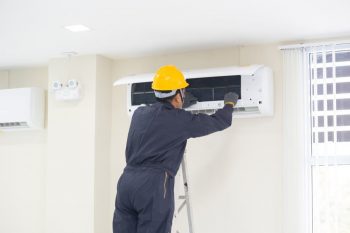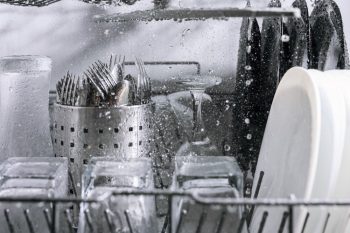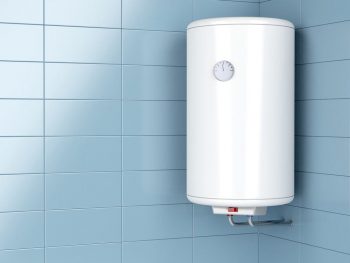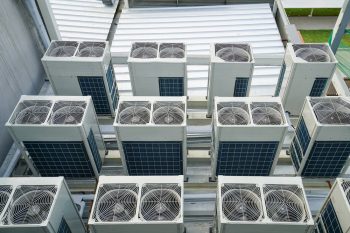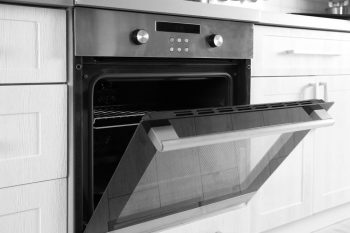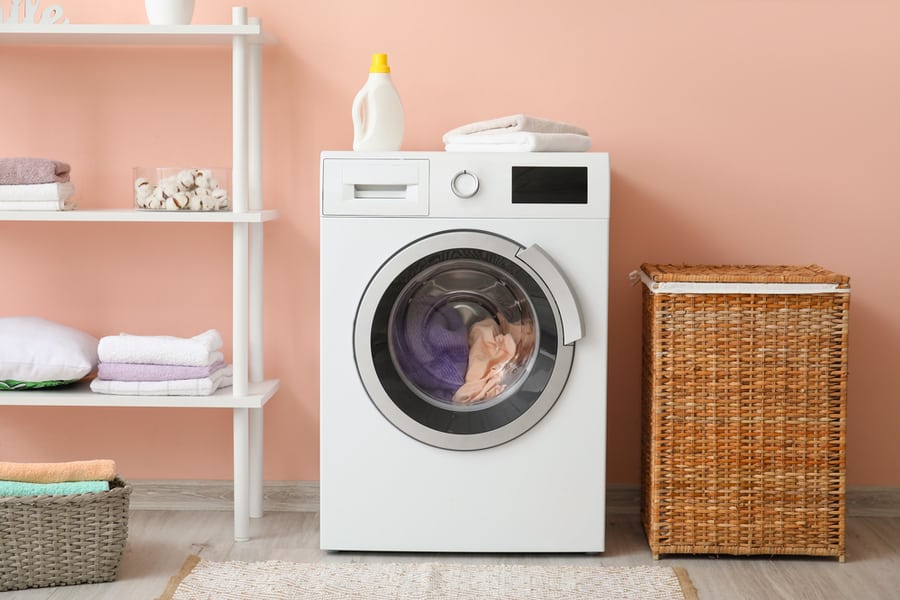
Inverter technology has taken the appliance market by storm since it was introduced in the 80s. Today, inverter tech is considered the golden standard for people who want to invest in energy-saving appliances.
Although most popular with air conditioners and refrigerators, washing machines can also come equipped with this power-saving tech. But what exactly is an inverter washing machine, how does it work, and is it worth it?
Here’s what you need to know.
- Inverter washing machines use specialized sensors to detect and control energy consumption.
- These machines are also quieter and last much longer than standard washers.
- The only downside to inverter washing machines is that they cost more to buy and maintain.
Most buying guides today will tell you to always choose inverter appliances to reduce your electricity bills. And while that might be true, there’s more to inverter technology than just cutting back on the cost of running your appliances.
What Is an Inverter Washing Machine?
When a washing machine uses Inverter Technology, it comes equipped with special sensors that fine-tune performance to match the qualities of your laundry load.
These washing machines incorporate a special device that detects the amount of current that feeds into the appliance, aptly adjusting energy consumption while it operates. That said, an inverter washing machine only uses as much electricity as it needs.
What Are the Benefits of an Inverter Washing Machine?
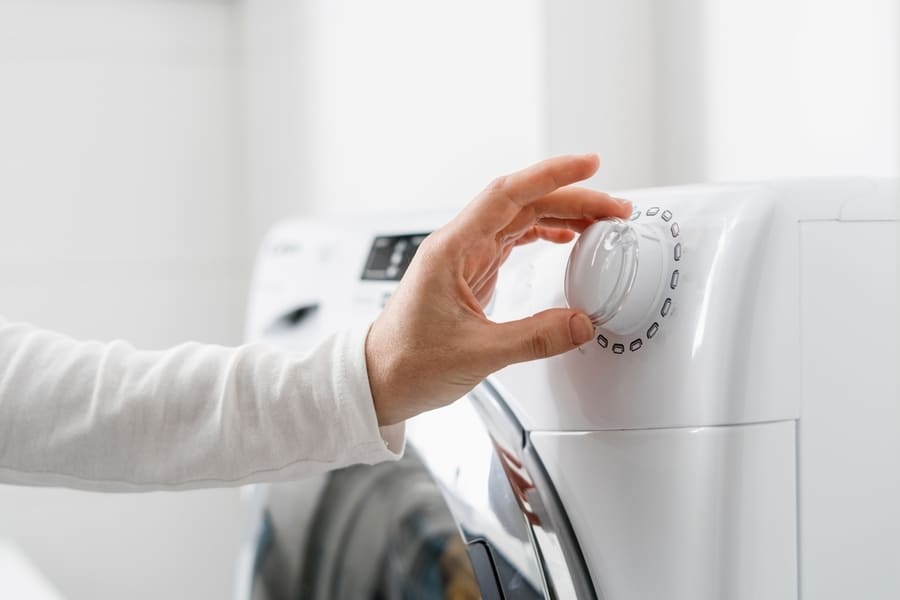
There are several reasons why consumers tend to gravitate more toward inverter washing machines versus their non-inverter counterparts.
These include the following:
- Energy efficiency – The most well-known benefit of inverter tech is that it reduces energy consumption, and that’s true. Studies have found that inverter washing machines can use up to 40% less electricity when compared to standard, non-inverter washing machines.
- Reduced noise and vibration – Inverter washing machines produce much less noise and vibration than non-inverter models. As the sensors detect the qualities of your cycle, it adjusts the speed and movement of the tub, effectively achieving a more controlled spin and wash cycle.
- Longer lifespan – Inverter appliances, in general, tend to last much longer when compared to non-inverter alternatives. Controlling the use of electrical current helps the washer protect the components from power surges and unnecessary spikes in speed.
Ultimately, inverter tech works more gently on your washer’s moving parts, allowing the unit to last longer. - Extended warranty – Washing machines using inverter technology also have longer warranty periods. That’s because manufacturers feel more confident that inverter models will work better to protect their various components, reducing the chances of damage caused by wear and tear.
The Cons of Inverter Washing Machines
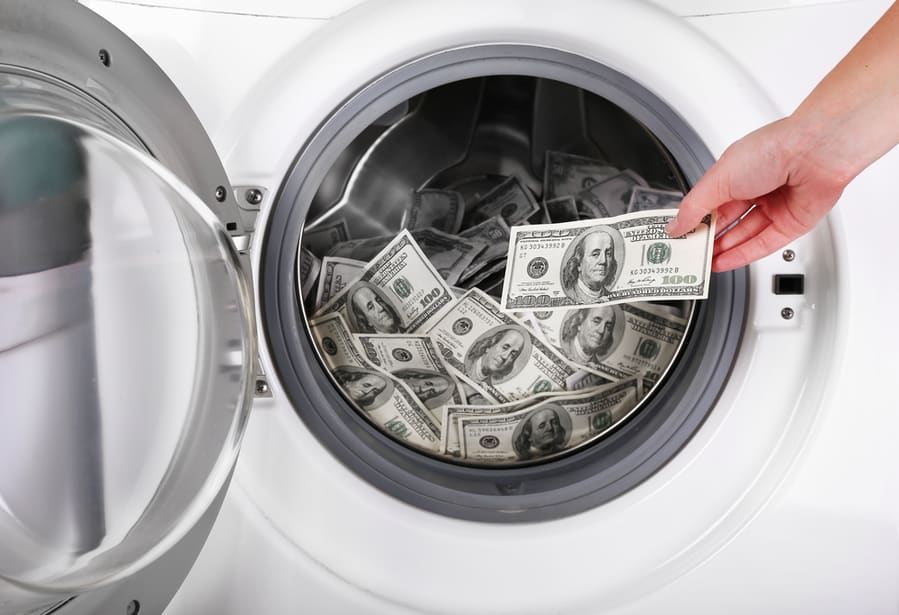
There’s no such thing as the perfect appliance. Here are some possible drawbacks you might face if you decide to buy an inverter washing machine:
- Expensive upfront cost – Inverter washing machines can be up to 30% more expensive than conventional models. This makes buying an inverter unit slightly more painful on the pocket if you’re considering the upfront expense of acquiring one.
- Costly repairs – Even maintenance and repairs can be more expensive when you’ve got an inverter washing machine. With the inclusion of inverter technology, washing machines have become more complex, complicating the process of repairs and maintenance.
- So while it’s less likely to break down, an inverter washing machine will cost more to repair.
Takeaway
Inverter washing machines prove to be a worthy investment, especially if you’re interested in long service life, increased durability, and reduced electricity bills. But they’re not perfect appliances.
Altogether more expensive than standard washers, inverter washing machines come at a price point that might not be accessible to all buyers.
Frequently Asked Questions
Are All Inverter Washing Machines Also High Efficiency?
High-efficiency or simply HE washing machines are slowly but surely phasing out non-HE models. These washing machines significantly reduce the use of water and electricity to regulate the overhead cost of running your washing machine.
While some older inverter washing machine models might not be HE, most of the newer units you’ll find today incorporate both features.
Are Inverter Washing Machines Better?
In a lot of ways, they can be. Better equipped at managing energy consumption, inverter washing machines also last longer and work more efficiently.
With maintenance and acquisition costs being the only drawback, spending extra on an inverter washing machine is a small price to pay, considering what you get in return.


